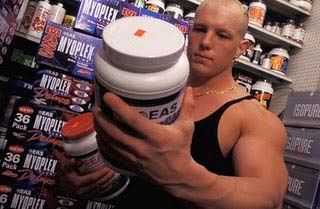Quality Nutritional Supplements
If you are concerned about the quality of the nutritional supplements you choose, then you have come to the right place. CNCA is deeply concerned too, and with good reason: the quality of dietary supplements is highly erratic and it is difficult for anyone to determine which brands are “better” than others. You will not find any advertising messages or meaningless claims below. Instead, you will simply get the facts, and our expert opinions about supplement quality issues.
Measuring Supplement Quality: You Get What You Pay For
The quality of nutritional products we call “dietary supplements” can be measured by three things:
Authenticity:
The ingredients listed on the label match the ingredients contained in the product.
Potency:
The amounts of each ingredient listed on the label are the minimum amounts contained in each capsule, tablet, or teaspoonful, at its expiration date.
Purity:
There are no unlisted ingredients added to the product. The ingredients do not contain dangerous levels of biological or chemical contaminants, fillers or additives.
While these three measures are easy to define, they are, in manufacturing practice, quite complex. Problems in each of these areas have been extensively reported in medical journals and by independent analytical laboratories. Purity is the most common and potentially dangerous problem. CNCA takes purity very seriously. CNCA is committed to providing products to improve your health, not to potentially threaten it with dangerous contaminants.
Unlike other nutritional supplement companies, CNCA routinely tests for contaminants. CNCA does this to protect customers from potentially dangerous contaminants. Testing is expensive. As a result, CNCA products will never be as “cheap” as discount brands.
Is The Extra Cost Worth It?
Many supplements have tested positive for toxins. That's why CNCA performs up to 17 sets of tests. Other companies do as few as 5. Which brand would you trust?

If your health is important to you then so should be the quality of nutritional supplements that you take.
When confronted by a wall of vitamins and mineral supplements on your next trip to the local pharmacy you might want to mask yourself the following questions.
• Has the product been manufactured to pharmaceutical grade standards for Good Manufacturing Processes (GMP’s). Many products are manufactured using food grade standards which are vague guidelines open to interpretation
• Have the nutritional supplements been independently tested as well as being guaranteed safe?
• Are the potency levels on the label guaranteed? Is the potency at low level RDA’s or are they at levels shown to be suitable for maintaining optimal health and preventing degenerative diseases? Does the guarantee include a safety clause?
• Does the product exclude potentially unsafe nutrients that may be toxic at high levels such as Iron and Vitamin A?
• Does the manufacturer of the nutritional supplements offer any special guarantees of safety over and above the norm?
• Is the product manufactured to a standard that satisfies high pharmaceutical standards for full disintegration?
• Does the product have a use by date?
• Has the product been manufactured in house rather than outsourced to various manufacturers and then marketed by another company?
• Is the daily suggested dosage a single pill? If this is the case it is highly unlikely that the dosage is at optimal amounts.
• Are the ingredients tested for bioavailability?
Once you find a product that comfortably fills all these criteria for quality you can be confident that you are purchasing a quality nutritional product.
Not all manufactures readily give such detailed information on their labels or any supporting literature.
There are only a handful of companies which lead the field in terms of integrity and quality. There are a myriad of companies that rely on full scale TV advertising and heavy marketing and much of the market remains confused.
It is important to educate yourself on the differences.
Your health is worth it.
